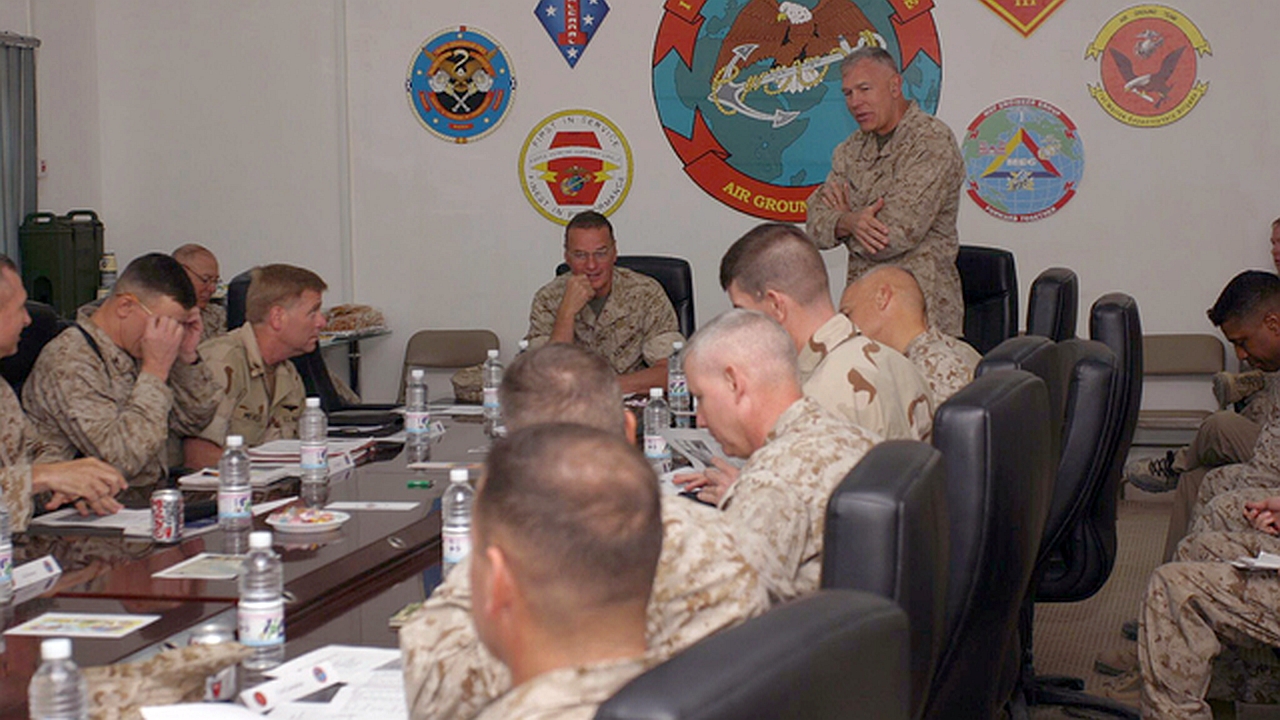
Organization Management Rhythm (part 7.1): Analysis – Phase 1: Identify and Document the Existing Organization Rhythm
This article is part 7.1 of a series of articles on Organization Management Rhythm.
Initial Organization Management Rhythm analysis focuses on discovering the existing processes and products used to inform decision makers. Efforts to capture newly discovered information will result in continuous cyclical updates to the Information Flow Diagram, Staff-Utilization Matrix, Time-Space Matrix, Organization Calendar, and 7-Minute Drill Rollup. Find what is being used to start identifying the initial requirements.
Gather existing documents, such as organizational charts, events rollup, senior staff and organizational calendars, and information flow diagrams for the organization and the other organizations that work with the organization. Organizational charts define how the organization is structured and provide a staff configuration that will be the basis of the Staff-Utilization Matrix. 7-Minute Drills, or equivalent documents, if accurate, define the purpose, participation and scheduling of existing Organization Management Rhythm events and contribute to the development of the 7-Minute Drill Matrix/Event Matrix and the initial Organization Management Rhythm Event Schedule. Various staff calendars inform the process as to the separation of Organization Management Rhythm events from other activities.
Talk to staff members about the organization’s culture. Many aspects of an organization’s daily processes cannot be discovered in a document or database, but only by observing processes, talking to participants, and even taking part in them. Using the evolving Information Flow Diagram and 7-Minute Drill Matrix/Event Matrix as discussions points will reveal additional details. Ask questions such as those outlined in the following list of Organization Management Rhythm engagement questions.
Organization Management Rhythm Engagement Questions
- Are there gaps or missing events in the information flows?
- What deliverable reports or products do you have to head office?
- Do you provide the same information or product to multiple events?
- How do you get an issue to leadership?
- How do you get notified of Organization Management Rhythm event changes?
- Do meetings/events typically start and end on time?
- If you could change one thing in the Organization Management Rhythm what would you change?
- Do your events have the right people at the right level to support the event?
- Do your events have an agenda and do they stick to those agendas?
- Is tasking reviewed and followed up on from previous meetings?
- Is event tasking captured, summarized, and put into a tasking system?
- How does your organization handle internal and external tasking?
- Does your organization have or use a request for information (RFI) process?
- Which Organization Management Rhythm event is the most important to you?
- If you could cancel one event which one would you cancel?
(Source: Turner & Williams, 20201).
Next part (part 7.2): Analysis – Phase 2 Analysis, Conduct Assessment.
Acknowledgements: Thank you to Tomi Antill, Keith Davis, Elise Keith from Lucid Meetings, JFHQ-C Leadership, and Kendra Albright from Kent State University, without whose support this series would not have been possible.
Header image source: U.S. National Archives, Public Domain.
Reference:
- Turner, J. A., & Williams, D. E. (2020, October 1). JECC KM Practitioners Training. https://www.jecc.mil/Training/JECC-KM-Practitioners-Training/. ↩






